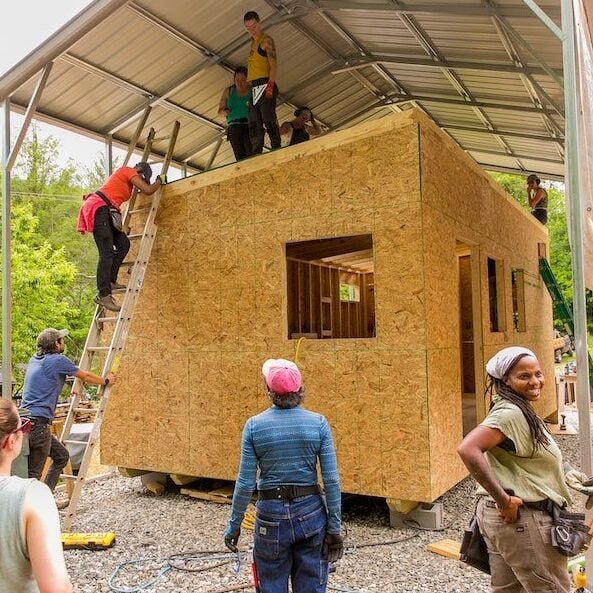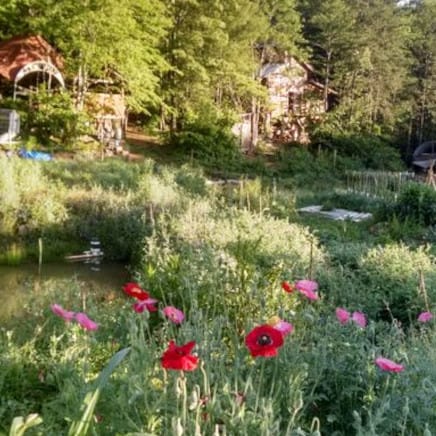This 10 day tiny house class is a unique and lovely opportunity.
This class has a very similar curriculum to our regular Tiny House Building Class, with the bonus that you get an extra day of class! While the class will be longer, it will have less students, there will be 12 students total (usually the classes are much bigger), and half of these will be participants in the 4 month Hands-On Carpentry Program. The build for this class is a 10×16 studio.

Please note, not all instructors will teach for every session of this class

